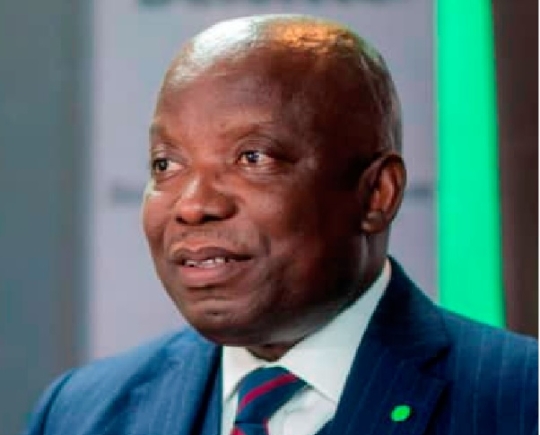
Make tax collection friendly — Deloitte Ghana to govt
Audit and consultancy firm, Deloitte Ghana, has recommended that the government and its tax collecting agency adopt a more friendly tax collecting approach that identifies industry as partners in economic development.
The call, which is on the back of growing concerns raised by industry players across the country about what they described as an overly aggressive tax collection method, Deloitte said, “we have also noticed growing concerns by industry about the extreme aggression of some of the regulatory authorities towards enforcing compliance.
Without discouraging enforcement, we strongly recommend an approach that identifies industry as partners in economic development.” Daniel K. Owusu, Country Managing Partner of Deloitte Ghana, said at the company’s annual budget hearing in Accra on the theme: Building together: Accelerating the recovery process through fiscal discipline and economic competitiveness.’’
Raising revenue
With the international capital markets closed to Ghana because of the country’s unsustainable debt levels, the only option left to the government has been to raise revenue domestically through the issue of papers, treasury bills and improved tax collection.
Advertisement
Ghana's 13 per cent tax-to-Gross Domestic Product (GDP) ratio is said to be far below its peers, a development which the government has determined to change to reach a target of 18-20 per cent in the next couple of years.
In view of this, the Ghana Revenue Authority (GRA), the tax collecting agency of the state, has been highly aggressive in demanding compliance from all eligible taxpayers in the country in a bid to help the government meet its target as far as tax to GDP ratio is concerned.
It also forms part of a grand move to ensure compliance at all levels by ensuring that those taxpayers who evade or avoid it, are brought to book.
Records indicate that under nine per cent of working Ghanaians pay income tax in the country. Again, only 2.5 million people are bearing the burden of the entire population as taxpayers over eight million. The low tax-to-GDP ratio of the country makes it hard to finance the country’s developmental agenda.
Indirect taxes
In the last couple of years, the government has imposed a wide range of taxes and levies, creating what the industry says is not only confusing but affecting the prices of goods and services in the country.
As a result, Mr Owusu urged the government to consider consolidating some of the indirect taxes, especially the six per cent levies into the Value Added Tax (VAT) regime.
“In the short to medium-term, the government should consider removing the COVID-19 levies,” he added.
Fiscal discipline, economic competitiveness
Battered by the COVID-19 pandemic, unfortunate global events among other things, the government has been working towards fast recovery.
“To accelerate the recovery process, we must work together to adopt a comprehensive approach that addresses both fiscal discipline and economic competitiveness.
These two elements are mutually reinforcing and must work hand in hand with the government’s resolve to revamp the economy,” Mr Owusu said.
For instance, he said while fiscal discipline creates a stable and predictable macroeconomic environment that is conducive to investment and growth, economic competitiveness, in turn, brings about increased growth driven by public and private productivity which generates revenue for the government.
This further enhances the overall economic prosperity landscape.
Growing unemployment
The Deloitte Country Partner also identified one of the biggest challenges the economy and society was facing which has to do with the level of unemployment in Ghana.
“This has been exacerbated by the contraction of the industrial sector in 2023. Given the effort of the government on the planting for food and jobs phase, we encourage the government to enhance agro-processing and industry growth in general to create employment opportunities for our youth.
Again, he urged the government to work to stabilise the cedi against the country’s major trading currencies as the industry looks forward to this in any projections that are made.
“We have seen a downward trend in inflation in the recent months,” he added and urged the government to work to sustain the monetary and fiscal policy to keep moving inflation levels to the targeted levels
From 38.1 per cent in September, the general price levels slowed to 35.2 per cent last month, signalling a trend that falls in line with the government’s projection of below 30 per cent by the close of the year.

